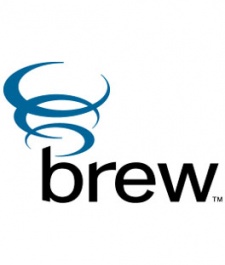One of the first announcements from Qualcomm at this year's BREW 2008 show was a deal to directly integrate Adobe's Flash Lite technology into its BREW chipsets something that'll happen this autumn.
The official line is that Flash developers will now be able to create rich apps and web content in Flash for the BREW environment, with both Qualcomm and Adobe providing tools to support developers. Adobe created a Flash Lite BREW extension back in 2005, but this is the first time it's actually been embedded in the chipsets.
It's good news for Adobe, helping it towards its goal of having Flash Lite shipping in more than a billion handsets by 2009. But what does the deal specifically mean for game developers, with many companies creating Flash Lite games already.
In an interview, Mike Yuen, senior director in the gaming group of Qualcomm Internet Services, gave his take on the news.
"The part we're really helping them with is the monetisation part," he says. "We have the ecosystem, so if Flash is available on a BREW device now, then if you make an application, we can pay everybody, and handle all that delivery part of it. That's the part they didn't really build out on mobile."
Will this spur a wave of Flash games for BREW phones? Yuen says it'll still depend what kind of game people want to create.
"If they want to create very simple, casual massmarket games, that they can do in Flash, now they can use the ecosystem to make money," he says. "You could do these games with the extension before, but this makes it a little easier."
What do developers make of it, though? Happily, there was a panel session devoted to the topic in the afternoon the deal was announced.
Eric Goldberg, MD of Crossover Technologies, pointed out the pure numbers benefit: Flash is currently only in 5 per cent of North American handsets, compared to 95 per cent of Japanese phones, apparently. So the BREW deal will change that.
Fellow panellist Marc Alloul of Mobitween was enthusiastic, too: "I think the Flash value proposition is bringing an interesting convergence between online and mobile. It's bringing a new and different way to market a mobile application."
The pros of Flash Lite as a games development platform compared to Java have always been the savings on costs and time for developers it's cheaper to make games, and significantly cuts the porting costs required for Java or even BREW.
The other perceived benefit is that Flash Lite lets existing Flash web developers take their games mobile with the minimum of fuss. Or does it? Tom Hubina of Amplified Games struck a note of caution:
"I'm concerned about the version of Flash that's being used," he said. "Flash Lite is a stripped down version of Flash 5, whereas the current version online [Flash 9] has a lot more features. If Qualcomm is embedding Flash in the chipset, which version are they embedding? Because that's going to set the bar."
He was backed up by Nick Desai, CEO of Juice Wireless. One of the potential benefits of Flash being integrated into BREW is the ability to bring the kind of Flash-based apps you see on MySpace and Facebook to mobile.
Yet as he pointed out: "A lot of the online widgets that you see based on Flash are based on the very latest Flash innovations, and those innovations are a necessity. So some of those will not automatically come to the phone, although I understand that mobile Flash Lite is software upgradeable."
Meanwhile, Digital Chocolate's COO Jason Loia said that Flash Lite on mobile can have a big impact on mobile gaming, but only if it allows the same kind of viral sharing that web Flash content has.
"Will users be able to virally spread the discovery of applications through Flash Lite?" he asked.
"The jury is still out. If carriers treat this as just another porting platform, it will not transform the industry. It should be about users treating the handset as a first-rate platform where they can discover content and share it with their friends."
However, Eric Goldberg warned that if Japan is any guide, Flash Lite could have a big impact in the US very quickly, if it gets into enough handsets and is supported.
"Major Flash Lite players there are doing more business than the downloadable players," he said. "It's not close, either. Mobage and Namco Village are destroying everyone. It took two to three years for it [Flash Lite] to knock out the BREW and Java stuff."
What does Qualcomm's BREW / Flash Lite deal mean for mobile games?
The experts explain





















